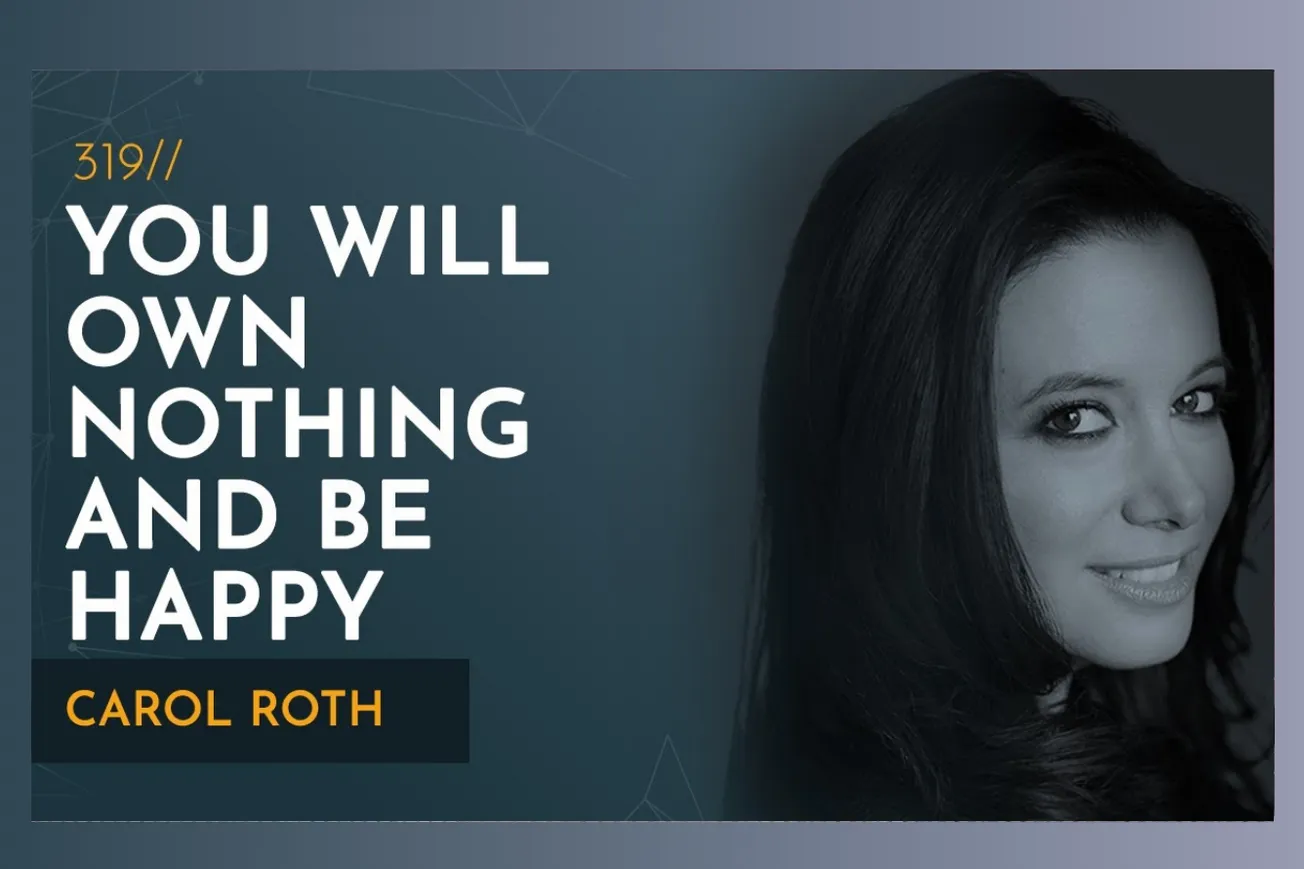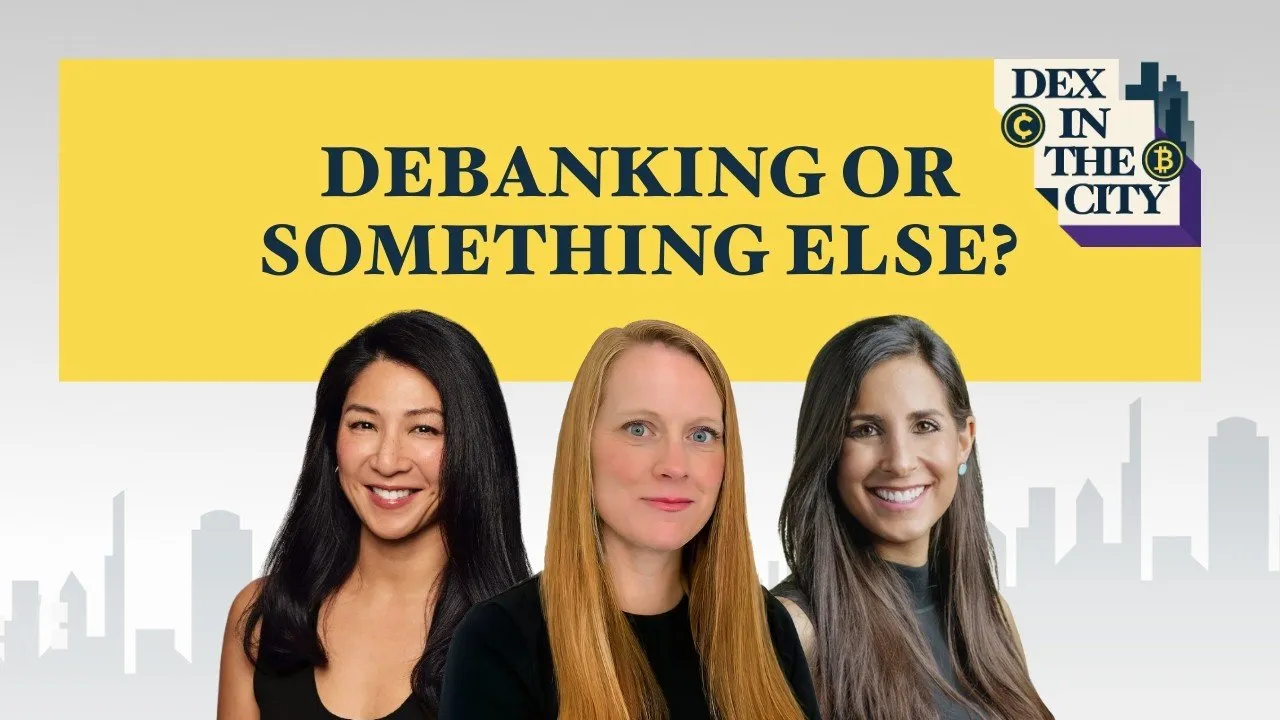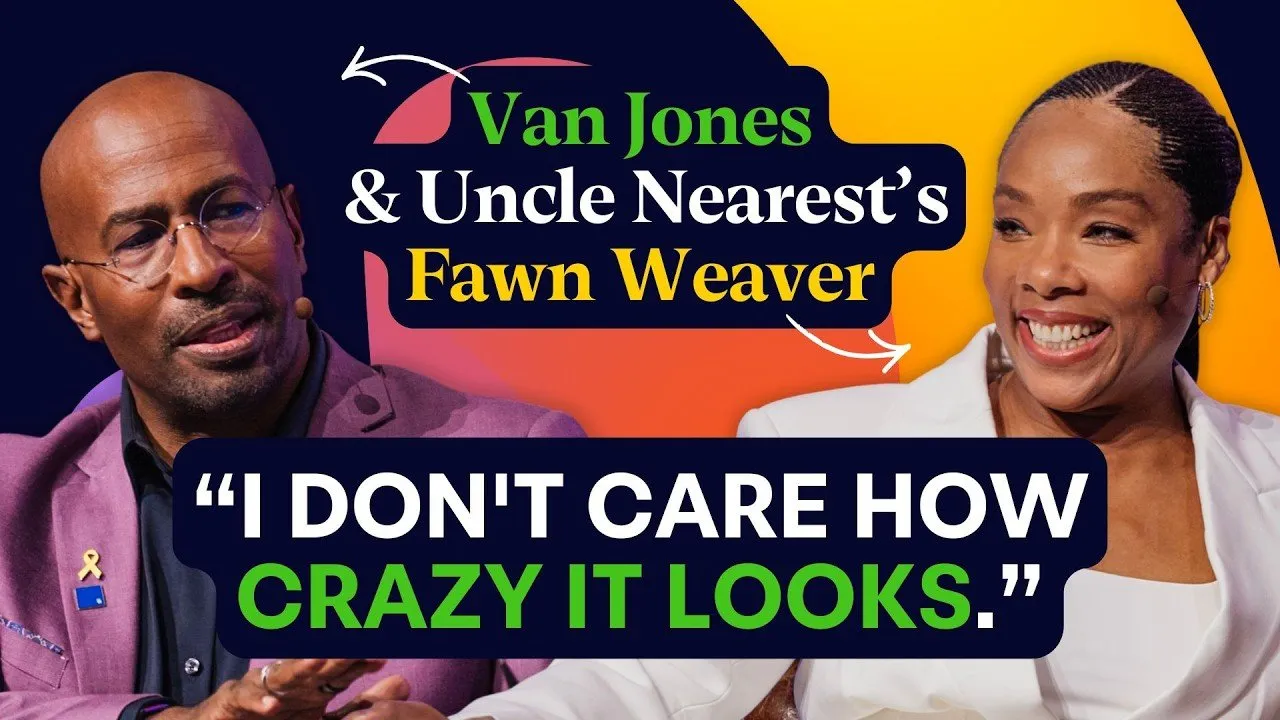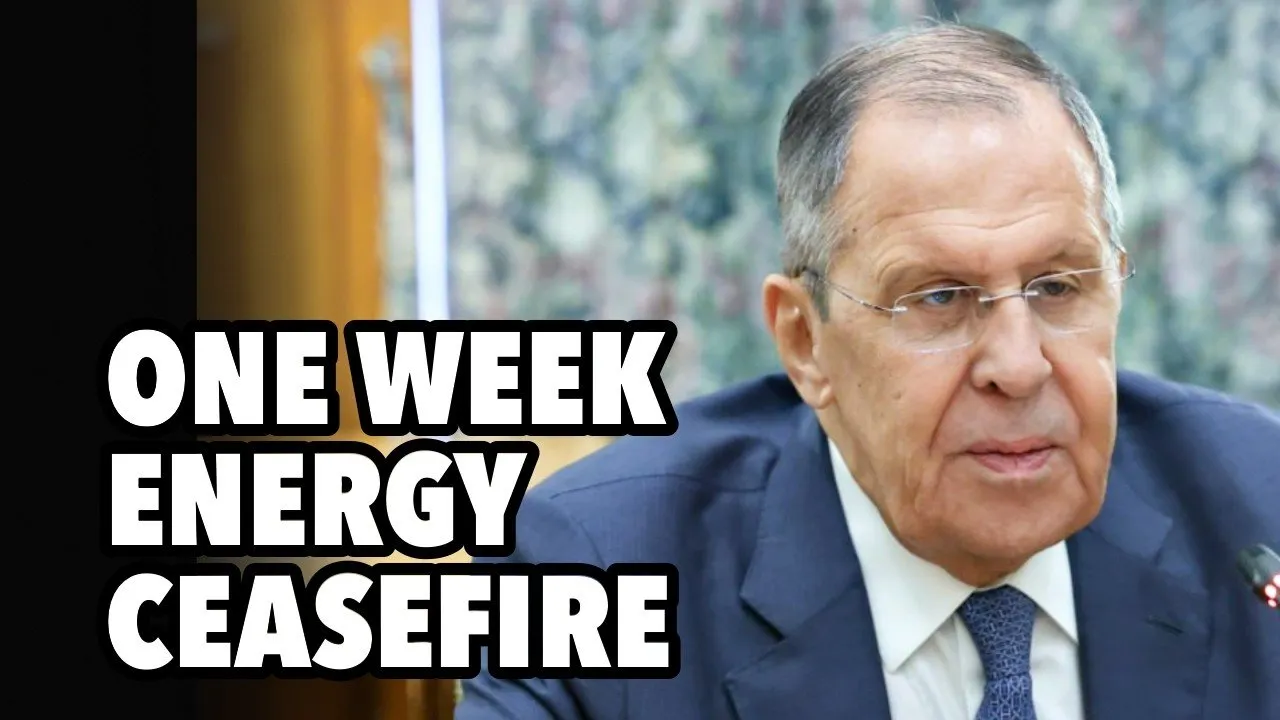Table of Contents
Investment banker turned author Carol Roth exposes the systematic shift from ownership to subscription models driving wealth concentration and threatening middle-class prosperity.
Key Takeaways
- World Economic Forum's "You will own nothing and be happy" prediction represents coordinated elite effort to reshape economic structures rather than conspiracy theory.
- Corporate buyers purchased one in five US homes last year with intention to rent rather than sell to families, marking unprecedented institutional capture of residential real estate.
- US dollar stability has been compromised both domestically through 97% purchasing power erosion since 1913 and internationally through weaponization against Russia.
- Central bank digital currencies (CBDCs) could enable direct government control over individual spending decisions rather than relying on interest rate mechanisms for economic management.
- Millennials earn more than previous generations inflation-adjusted but have less wealth due to asset price inflation from 15 years of near-zero interest rates and massive debt burdens.
- Elite coordination occurs through overlapping networks including World Economic Forum, UN, BlackRock, and government officials rather than traditional conspiracy structures.
- Good ideas like environmental stewardship get co-opted by profiteers, useful idiots, and power-seekers creating systems that benefit elites while harming average citizens.
- Media distrust spans both legacy institutions and independent creators, requiring individual verification of sources and claims rather than wholesale trust in personalities.
- Financial preparedness strategies include hard asset ownership, estate planning, community bartering systems, and reducing technology dependence for essential services.
Timeline Overview
- 00:00–15:30 — Carol Roth Background: Blue-collar family origins, Wharton education, investment banking career helping mid-stage companies like Cheesecake Factory raise capital
- 15:30–28:45 — Media Career Evolution: Transition from investment banking to helping underdogs through television punditry, business radio, and educational content creation
- 28:45–42:00 — Book Series Through-Line: "Entrepreneur Equation" anti-motivational guidance, "War on Small Business" pandemic chronicling, leading to "You Will Own Nothing" wealth barrier analysis
- 42:00–55:15 — World Economic Forum Prediction Origins: Discovering "you will own nothing and be happy" wasn't taken out of context, represents systematic approach to ending private property
- 55:15–68:30 — Millennial Wealth Paradox: Higher inflation-adjusted incomes but lower wealth accumulation due to asset price inflation and college debt burdens
- 68:30–81:45 — Global Financial Order Shifts: US dollar hegemony challenges, debt sustainability concerns, Biden's "new world order" speech to Business Roundtable CEOs
- 81:45–95:00 — Corporate Housing Market Capture: Institutional buyers entering single-family market for first time since 2010, turning American Dream into rental subscription model
- 95:00–108:15 — Elite Coordination Framework: "Good ideas to bad outcomes" model explaining how environmental and social goals get co-opted by profiteers and power-seekers
World Economic Forum's Ownership Elimination Agenda
Carol Roth's investigation into the World Economic Forum's prediction that "you will own nothing and be happy" by 2030 reveals this wasn't taken out of context but represents a systematic vision for restructuring global economic relationships. The WEF's Global Future Councils have repeatedly promoted variations of this theme, framing property elimination as convenience and liberation rather than wealth confiscation.
- The prediction emerged from articles describing futuristic scenarios where individuals rent all necessities rather than owning assets, presented as utopian convenience despite historical evidence that non-ownership correlates with poverty and social control.
- WEF's extensive network includes government officials like former German Chancellor Angela Merkel, Canadian Prime Minister Justin Trudeau, and Deputy Prime Minister Chrystia Freeland through their Young Global Leaders program.
- Klaus Schwab explicitly described their strategy as "penetrating the cabinets" of various governments, indicating coordinated effort to install aligned officials in positions of power.
- The organization's influence extends beyond government into corporate leadership through partnerships with companies like BlackRock and coordination with UN sustainable development initiatives.
This systematic approach to eliminating private property ownership represents a fundamental challenge to wealth creation opportunities that have historically enabled middle-class prosperity and social mobility.
Corporate Capture of American Housing Market
The transformation of single-family housing from individual ownership to corporate rental represents one of the most significant wealth transfer mechanisms currently operating in the American economy. Prior to 2010, institutional capital played virtually no role in residential real estate markets, but cheap money policies have driven unprecedented corporate acquisition of homes intended for families.
- One in five homes sold in the United States last year went to major corporate buyers with explicit intentions to rent rather than renovate and resell to families.
- Corporate filings and annual reports describe single-family rental as a "golden opportunity" to extract ongoing revenue from what was previously the primary wealth-building asset for American families.
- The strategy involves marketing rental arrangements as convenience and flexibility while systematically removing homeownership opportunities that historically provided intergenerational wealth transfer.
- Housing represents the number one asset by value across all demographic groups in America, making its conversion to rental income streams a massive wealth concentration mechanism.
This corporate capture occurs precisely when younger generations face the greatest barriers to homeownership through inflated prices, higher interest rates, and existing debt burdens from educational expenses.
Dollar Hegemony Under Systematic Assault
The US dollar's role as global reserve and trading currency faces unprecedented challenges from both domestic policy failures and international coordination efforts to develop alternative systems. America's weaponization of dollar access and chronic fiscal irresponsibility have accelerated de-dollarization trends that threaten the economic privileges underpinning American prosperity.
- Since 2014, foreign central banks have been net sellers rather than buyers of US Treasury securities, forcing the Federal Reserve to monetize increasing portions of government debt through money printing.
- The Biden administration's decision to freeze Russian foreign reserves following the Ukraine invasion demonstrated that dollar holdings provide no security against political disagreements with Washington.
- BRICS nations (Brazil, Russia, India, China, South Africa) are actively developing alternative trading and settlement mechanisms, with China offering gold-backed settlement options for countries seeking dollar alternatives.
- The US debt-to-GDP ratio exceeds 125%, well above the 70-80% sustainability threshold identified by international financial institutions, while unfunded liabilities approach $130 trillion.
Historical precedent shows that global financial leadership shifts every 80 years, with previous transitions from Dutch to British to American dominance typically preceded by military conflicts that reset international monetary arrangements.
Central Bank Digital Currency Control Mechanisms
The development of Central Bank Digital Currencies represents a qualitative shift from monetary policy influence to direct control over individual economic behavior. Unlike current systems where central banks adjust interest rates to influence aggregate demand, CBDCs would enable governments to directly restrict or enable individual spending decisions in real-time.
- CBDCs differ fundamentally from payment systems like FedNow, which improve transaction settlement speed without changing currency nature or control mechanisms.
- Digital currencies could implement automatic spending restrictions during perceived economic emergencies, replacing interest rate adjustments with direct demand destruction through individual account limitations.
- The technology enables programmable money that could restrict purchases by category, geographic location, or individual behavioral scores similar to China's social credit system.
- Government officials could offer exchange rates like "100 digital dollars for every paper dollar" to accelerate adoption while simultaneously devaluing existing savings through artificial scarcity creation.
The appeal of CBDCs to governments struggling with debt sustainability and inflation control creates incentives for implementation regardless of consequences for individual financial autonomy and privacy.
Elite Coordination Through Overlapping Networks
Rather than operating through traditional conspiracy structures, elite coordination occurs through overlapping institutional networks that align incentives and coordinate messaging across government, corporate, and non-governmental organization domains. These networks enable systematic policy coordination without requiring explicit central planning or secretive meetings.
- The same individuals and organizations appear repeatedly across different initiatives: World Economic Forum participants coordinate with UN officials, BlackRock executives, and government leaders on related policy objectives.
- Environmental, Social, and Governance (ESG) investing represents one clear example where the same network promotes coordinated corporate behavior through investment fund requirements and regulatory pressure.
- Young Global Leaders programs and similar initiatives create shared ideological frameworks among future leaders while providing ongoing coordination mechanisms through alumni networks.
- Media coordination occurs through shared sources, similar messaging, and synchronized policy promotion across multiple platforms and organizations.
This coordination operates through what Roth calls "good ideas to bad outcomes" where legitimate concerns like environmental protection get co-opted by profiteers seeking fees and useful idiots seeking social validation.
Millennial Wealth Accumulation Challenges
Despite earning higher inflation-adjusted incomes than previous generations, millennials face systematic barriers to wealth accumulation through asset ownership that historically enabled middle-class prosperity. The combination of inflated asset prices, debt burdens, and policy-driven advantages for existing asset holders creates structural disadvantages for younger generations.
- Federal Reserve policies including 15 years of near-zero interest rates and $9 trillion in money printing inflated asset values for existing owners while making acquisition more expensive for new buyers.
- Student debt nationalization eliminated bankruptcy protections while enabling unlimited borrowing for degrees with poor return-on-investment characteristics, creating permanent debt servitude for many graduates.
- Housing cost increases driven by central bank policy and government regulations price out first-time buyers precisely when corporate investors gain access to cheap capital for residential acquisition.
- The wealth gap between asset owners and non-owners has accelerated during periods of monetary expansion, creating a "barbell" economy with prosperity concentrated among existing asset holders.
These structural barriers operate independently of individual effort or merit, representing systematic changes in economic opportunity rather than generational character differences.
Media Landscape Trust and Verification Challenges
The fragmentation of media authority between legacy institutions and independent creators has created new challenges for information verification and source credibility assessment. Both traditional outlets and independent personalities demonstrate biases, errors, and incentive structures that compromise information quality, requiring individual verification strategies rather than wholesale trust in any sources.
- Independent media personalities with large audiences often become captured by their subscriber base, feeding preferred narratives rather than pursuing truth regardless of audience preferences.
- Legacy media institutions maintain naming credibility and resource advantages but demonstrate systematic biases and coordination with government and corporate interests.
- Social media amplification enables both accurate information discovery and rapid misinformation spread, with identical dynamics affecting both legitimate researchers and conspiracy theorists.
- Financial incentives through subscription models, advertising revenue, and speaking fees create systematic pressures toward sensationalism and audience validation rather than accuracy.
Effective information consumption requires treating all sources as potentially compromised while using original documents, government filings, and cross-referencing multiple perspectives to verify important claims.
Individual Preparedness and Community Resilience Strategies
Rather than attempting to prevent large-scale economic and political changes, individuals can focus on personal and community preparedness strategies that provide resilience during periods of transition and uncertainty. These approaches emphasize practical steps that improve outcomes regardless of specific scenario developments.
- Financial diversification into hard assets including real estate, precious metals, and ownership stakes in productive enterprises rather than paper claims subject to political interference.
- Estate planning strategies including trust structures and systematic gifting programs to transfer wealth before potential policy changes eliminate inheritance opportunities.
- Community relationship building to enable bartering, mutual aid, and alternative economic arrangements during periods when traditional systems face disruption.
- Technology independence strategies to reduce dependence on digital systems for essential services including food procurement, communication, and financial transactions.
- Skill development in practical areas that retain value during economic transitions, including food production, basic manufacturing, and service provision.
The distinction between "being prepared" versus "being a prepper" involves creating resilience plans without allowing fear to dominate daily life experience and decision-making.
Carol Roth's analysis reveals how coordinated elite networks are systematically dismantling individual ownership opportunities through corporate capture, policy manipulation, and cultural messaging that frames asset ownership as inconvenient rather than essential for wealth building. Her "good ideas to bad outcomes" framework explains how legitimate concerns get co-opted by profiteers and power-seekers who benefit from concentration while ordinary citizens lose economic autonomy.
The solution involves recognizing these patterns, preparing for continued wealth concentration trends, and building individual and community resilience through hard asset ownership, skill development, and reduced dependence on systems controlled by hostile interests.
Practical Implications
- Asset Ownership Priority: Focus on acquiring hard assets including real estate, precious metals, and productive enterprises rather than paper claims vulnerable to policy changes and monetary manipulation
- Estate Planning Urgency: Implement trust structures and systematic gifting strategies immediately to transfer wealth before potential tax policy changes eliminate inheritance opportunities
- Community Network Development: Build local relationships that enable bartering, mutual aid, and alternative economic arrangements during periods of system disruption or control
- Technology Independence: Reduce reliance on digital systems for essential services including banking, communication, and commerce to maintain autonomy during potential restrictions
- Information Source Diversification: Verify important claims through original documents and multiple sources rather than trusting any single media personality or institution regardless of reputation
- Skill-Based Resilience: Develop practical capabilities in food production, basic manufacturing, and direct service provision that retain value during economic transitions and system changes





